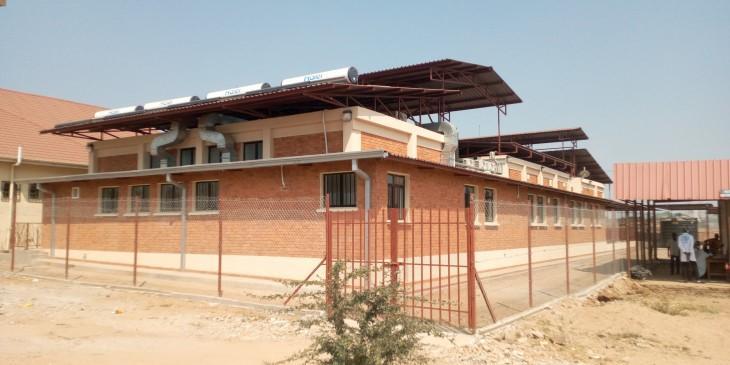Africa-Press – South-Sudan. The United Nations Development Programme (UNDP) in South Sudan, in collaboration with the Ministry of Health with funding from the Global Fund, has installed solar power to ease operations at Juba Military Hospital.
Speaking during the ceremony in Juba on Tuesday, Lt. Gen. Morris Lokule Yoane, the Assistant Chief of Defence Forces in charge of administration at Juba Military Hospital, said the solar system will provide life-saving support to civilians and soldiers across the country.
“The commissioning of the solar power system at Juba Military Hospital is a significant milestone and landmark event for the South Sudan People’s Defence Forces,” Lokule said.
“The military hospital is the first line of response for both emergencies and ongoing care of our uniformed personnel and their families.”
For his part, Brig. Gen. Chep Chuot Chep, the Director of Juba Military Hospital, stated that the installation of solar power at the main health facility will enhance operations, including serious medical emergency interventions.
“We were facing challenges with running power here at Juba Military Hospital. We were using two 330 KVA generators, each requiring five drums of fuel; ten drums could cover up to five days. This was not sufficient to meet the required hours for delivering our services, especially at night,” said Brig. Gen. Chep.
Brig. Gen. Chep revealed that Juba Military Hospital handled 15 cesarean sections for mothers per day, alongside cases of traffic accidents and incidents of communal violence from states including Jonglei.
“Our greatest concern was in maternity; delivering a child does not have a specific time. When it occurs at night, that is the worst situation we have faced. When you need to perform dressing or any emergency intervention on a patient, all of our wards are without electricity,” he said.
Mohamed Abchir, the country representative of the United Nations Development Programme, stated that the installation of solar power covered 23 health facilities, including state referral hospitals and the central medical store.
“This milestone is part of a larger initiative funded by the Global Fund. The hospital cannot function without a reliable power supply, and the solar system we are commissioning today is already assisting in emergency surgeries, critical care units, and the safe storage of blood and vaccines,” said Abchir.
“By investing in solar power, we are doing far more than switching on lights; we are switching on life-saving possibilities, ensuring uninterrupted provision of health services to both the military and civilian populations, both day and night,” he added.
Angelo Korok, a long-serving soldier from the First Infantry Division of the South Sudan People’s Defence Forces and a patient whose leg was recently amputated at the Military Hospital, said the hospital was often in darkness.
“At night, it was very bad; people used torches, and even the doctors used candles. You could not see a doctor at night. We request the United Nations Development Programme to install solar power in other health facilities,” said Korok.
For More News And Analysis About South-Sudan Follow Africa-Press






